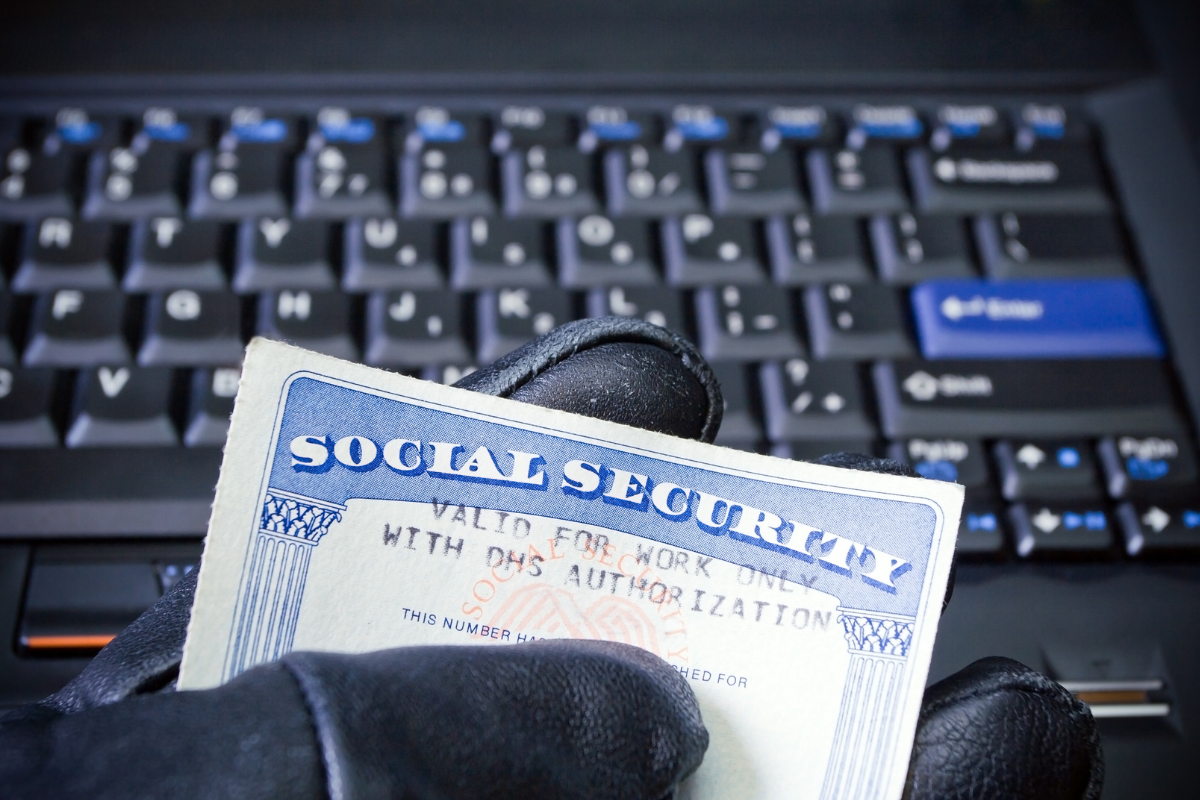We have grown up hearing that technology is a boon and a curse. With the rising rate of cybercrime, the phrase seems to be true.
In this digitized world, there is a sharp increase in the risks of identity theft and to be fair, it can affect pretty much anyone.
The Federal Trade Commission (FTC) received about 1.1 million complaints of identity theft through its website in 2022. So, wondering what to do if your identity is stolen is quite a normal take.
This article peeks into the ways you can safeguard yourself from ID theft and proactive steps to take if it happens.
What Is Identity Theft?
If you are wondering what identity theft is, let us clarify that first. Identity theft occurs when someone gains access to your personal information without your direct permission. The information may include your name, address, financial details, or even your social security number.

These thefts are often used for fraudulent practices. Imagine someone pretending to be you, making purchases, opening fake bank accounts, or even filing taxes in your name. The result? A mess of financial trouble and stress.
Thus, it is important to be vigilant about your security and take proactive steps to ensure it.
How To Prevent Identity Thefts?
Before we explore some of the steps to take if identity theft happens, let us take a look at ways you can implement it to prevent it from happening in the first place.
Do Not Share Your Personal Information
Sensitive information like personal details, bank details, date of birth, contact details, etc. should be kept private at all times. Never share these details with anyone that you aren’t aware of.
If you are asked to share your information, ask them the following questions to ensure your information is in safe hands:
- Why the company needs your information?
- What would happen if you dont share it?
- How do they keep your information safe?
- What is their privacy policy? You can ask for a copy of their privacy policy.
If you find any of the answers unsatisfactory, you should not share your personal details.
Password Protect Your Data
There is a reason why most websites urge their users to have strong passwords with case-sensitive letters, numbers, symbols, etc.
The National Institute of Standards and Technology (NIST) recommends using a password of at least 15 characters to make it difficult to crack. If you have a habit of forgetting your passwords, we’d recommend using a password manager.
Use Two-Factor Authentication
Another step you can take to prevent ID theft is to enable two-factor authentication. As per a 2017 Data Breach Investigation Report from Verizon, 81% of hacking-related breaches start with a compromised password. Hence, two-factor authentication offers an additional layer of security.
In the present day, almost every platform offers this benefit. Doing so sends a one-time code to your registered email or phone number so you can verify before logging into an account. So, even if your password is stolen, a hacker can’t access your device without your verification.

Monitor Your Financial Statements
Since bank details are often under hackers’ close monitoring, you want to monitor your financial statements frequently. If you find any unauthorized transaction, report that to your bank immediately.
Check Your Credit Reports Regularly
Checking credit reports regularly helps you keep an eye on the activity on your financial accounts including the last-reported balance. This way, you can detect any suspicious activity, like a transaction in your name that you did not do, before the situation gets worse.
You can check your reports from all the major credit bureaus- Equifax, Experian, and TransUnion- for free by AnnualCreditReport.com.
Secure Your Documents
Invest in a small safe or lockable filing cabinet for the safety of your crucial documents. Birth certificates, social security cards, and passports should be kept in a secure place not easily accessible.
If you are throwing away papers and documents because you don’t need them, always shred them before throwing them away. This is especially applicable to medical documents, bank statements, etc.
Beware Of Public Wi-Fi Networks
Public Wi-Fi networks – like those in cafes, airports, and hotels – are the hub of security risks. They are not really secure, making it easier for the identity thief to access your information.
If you are using public Wi-Fi, make sure to use a Virtual Private Network (VPN) to protect your data. Also, avoid making sensitive transactions like online shopping or banking when connected to public Wi-Fi networks.
Watch Out For Phishing And Scam Emails
Phishing emails are one of the most common ways people trap you in identity theft. What you have to do is avoid clicking on these emails and delete them immediately.
Install Antivirus
Installing antivirus software keeps your information safe from hackers’ access. It’s a practical step to prevent identity theft. Antivirus software scans your device for sneaky viruses and malware, blocking their entry before they can cause any harm.
Also, keep updating your antivirus software to the latest version as the outdated ones are easy to crack by identity thieves.
Types Of Identity Theft
Identity theft takes many forms, each with its own challenges and warning signs.
- Credit Identity Theft: Watch out for unexpected charges or unfamiliar accounts on your credit report. If you spot these signs, someone may have stolen your credit identity, making purchases, or getting loans in your name.
- Taxpayer Identity Theft: Be wary if the IRS notifies you of a duplicate return or unreported income. Taxpayer identity theft happens when someone files a fraudulent tax return using your details, potentially affecting your tax refund.
- Medical Identity Theft: If you receive medical bills for services you didn’t receive or strange entries on your medical records, your medical identity might have been stolen for fraudulent treatments.
- Account Takeover: Suspicious account activities, unauthorized password changes, or unrecognized login locations are red flags. Account takeover involves cybercriminals gaining control of your online accounts.
- Criminal Identity Theft: If you’re mistakenly linked to a crime you didn’t commit, you could be a victim of criminal identity theft. Legal troubles and arrests without reason are clear warning signs.

What To Do If Identity Theft Occurs?
Sometimes, even with all the preventive measures in place, you might fall trapped in fraudulent practices and become a victim of identity theft.
What do you do in such cases? Following are a few tips worth highlighting:
Act Fast
If you want to mitigate the issue quickly, you have to act fast and without wasting time. Don’t delay; take immediate steps to mitigate the situation. Here’s what you should do:
- Report To FTC: First, report on Identitytheft.gov, an identity theft reporting website run by the Federal Trade Commission (FTC).
- File a Police Report: Contact your local law enforcement agency and file a police report. This report can be crucial when dealing with creditors and institutions.
- Report to Credit Bureaus: Contact the major credit bureaus – Equifax, Experian, and TransUnion – and inform them of the identity theft. They can place a fraud alert on your credit report.
Notify The Bank
If the identity theft is related to your bank details, you must inform them immediately before the hackers end up draining all your life savings. They can help you with what you need to do and how to solve this issue.
Place A Fraud Alert Or Security Freeze
If you suspect an identity theft is ongoing, place a fraud alert and security freeze immediately. A fraud alert warns your creditors to verify your identity before extending credit, hence preventing further fraud.
A security freeze, on the other hand, locks down your credit report. It means no one (including you) can request access to your credit reports, open a new account, or make any transaction. It minimizes the chances of further damage.
Consider Legal Assistance
If the situation becomes complex or difficult to resolve, consult with an attorney who specializes in identity theft cases. A legal expert can help you navigate the challenging legal aspects, advise you on your rights, and represent you where necessary.
Don’t Take It Lightly
Just because identity theft has happened once doesn’t mean it can’t happen again. Hence, you need to pay close attention to the preventive measures and keep monitoring your accounts, credit reports, etc.
Regular monitoring is a proactive step that can help you detect and address any signs of potential future breaches.
Conclusion
Identity theft is a serious issue that needs to be dealt with with utmost importance and promptness.
If you don’t want things to get out of hand, you must take immediate steps, inform the concerned authorities, and try to undo the damage as much as possible.
Sometimes, it might be too late but there’s nothing wrong in trying to minimize the extent of the damage as much as you can.
Remember that prevention is your first line of defense. Implement strong security practices, monitor your accounts, and promptly look out for and report any signs of identity theft to safeguard your information and finances.
Identity theft may be a growing concern, but with the right knowledge and actions, you can protect yourself and your assets.